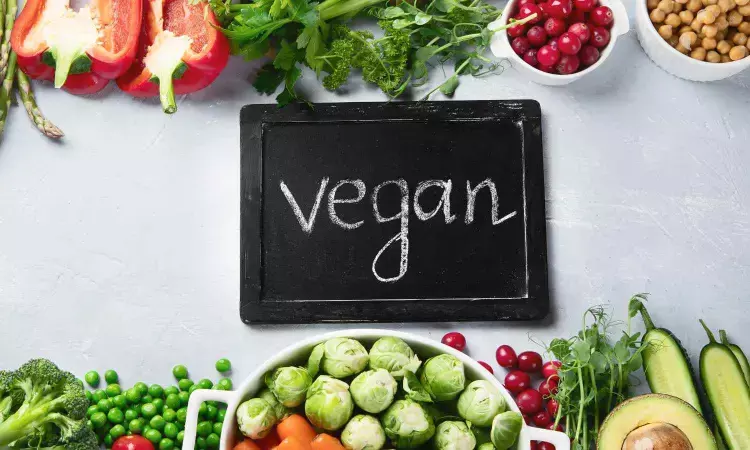- Home
- Medical news & Guidelines
- Anesthesiology
- Cardiology and CTVS
- Critical Care
- Dentistry
- Dermatology
- Diabetes and Endocrinology
- ENT
- Gastroenterology
- Medicine
- Nephrology
- Neurology
- Obstretics-Gynaecology
- Oncology
- Ophthalmology
- Orthopaedics
- Pediatrics-Neonatology
- Psychiatry
- Pulmonology
- Radiology
- Surgery
- Urology
- Laboratory Medicine
- Diet
- Nursing
- Paramedical
- Physiotherapy
- Health news
- Fact Check
- Bone Health Fact Check
- Brain Health Fact Check
- Cancer Related Fact Check
- Child Care Fact Check
- Dental and oral health fact check
- Diabetes and metabolic health fact check
- Diet and Nutrition Fact Check
- Eye and ENT Care Fact Check
- Fitness fact check
- Gut health fact check
- Heart health fact check
- Kidney health fact check
- Medical education fact check
- Men's health fact check
- Respiratory fact check
- Skin and hair care fact check
- Vaccine and Immunization fact check
- Women's health fact check
- AYUSH
- State News
- Andaman and Nicobar Islands
- Andhra Pradesh
- Arunachal Pradesh
- Assam
- Bihar
- Chandigarh
- Chattisgarh
- Dadra and Nagar Haveli
- Daman and Diu
- Delhi
- Goa
- Gujarat
- Haryana
- Himachal Pradesh
- Jammu & Kashmir
- Jharkhand
- Karnataka
- Kerala
- Ladakh
- Lakshadweep
- Madhya Pradesh
- Maharashtra
- Manipur
- Meghalaya
- Mizoram
- Nagaland
- Odisha
- Puducherry
- Punjab
- Rajasthan
- Sikkim
- Tamil Nadu
- Telangana
- Tripura
- Uttar Pradesh
- Uttrakhand
- West Bengal
- Medical Education
- Industry
Vegan or vegetarian diet positively affects ammonia levels and metabolomic profiles in cirrhosis patients: Study

A recent study published in the Clinical and Translational Gastroenterology journal highlights the potential benefits of substituting meat-based meals with vegan or vegetarian alternatives in patients with cirrhosis. This research elucidates on how dietary choices can influence ammonia production and metabolomics in these patients by providing valuable insights for dietary management in cirrhosis.
The study focused on outpatients with cirrhosis who typically follow a Western meat-based diet. The participants with and without a history of hepatic encephalopathy (HE) were randomized into three groups. Each group received a burger containing 20 grams of protein, either from meat, vegan (V) or vegetarian (VG) sources. The study further monitored blood ammonia levels and conducted metabolomic analysis with the help of liquid chromatography-mass spectrometry at baseline and hourly for three hours post-meal.
The study revealed significant differences in ammonia levels and metabolomic profiles between the groups. Also, serum ammonia levels increased in the meat group but remained stable in the vegan and vegetarian groups. This suggests that substituting meat with plant-based alternatives can reduce ammoniagenesis in the patients with cirrhosis.
The meat group experienced a decrease in metabolites associated with branched-chain amino acids and acylcarnitines, while lipid profile alterations were also observed. Also, higher levels of sphingomyelins and lower levels of lysophospholipids were observed in the meat group when compared to the vegan and vegetarian groups which highlighted the distinct changes of metabolomic analysis.
The findings indicate that intermittent substitution of meat-based meals with vegan or vegetarian alternatives can positively affect ammonia levels and metabolomic profiles in cirrhosis patients. This could be particularly beneficial in managing HE, a severe complication of cirrhosis characterized by elevated ammonia levels and cognitive dysfunction. The study found that stool microbiome composition was similar across all groups at baseline by suggesting that the observed metabolic changes were directly related to the dietary intervention than the underlying microbiome differences.
Overall, vegan and vegetarian meal substitutions could offer a practical dietary strategy for managing cirrhosis and preventing complications such as HE by reducing ammonia generation and favorably altering the metabolomic profiles. Further studies to explore long-term impacts and the mechanisms behind these dietary effects are imperative.
Reference:
Badal, B. D., Fagan, A., Tate, V., Mousel, T., Gallagher, M. L., Puri, P., Davis, B., Miller, J., Sikaroodi, M., Gillevet, P., Gedguadas, R., Kupcinkas, J., Thacker, L., & Bajaj, J. S. (2024). Substitution of One Meat-based meal with Vegetarian and Vegan Alternatives Generates Lower Ammonia and Alters Metabolites in Cirrhosis: A Randomized Clinical Trial. In Clinical and Translational Gastroenterology. Ovid Technologies (Wolters Kluwer Health). https://doi.org/10.14309/ctg.0000000000000707
Neuroscience Masters graduate
Jacinthlyn Sylvia, a Neuroscience Master's graduate from Chennai has worked extensively in deciphering the neurobiology of cognition and motor control in aging. She also has spread-out exposure to Neurosurgery from her Bachelor’s. She is currently involved in active Neuro-Oncology research. She is an upcoming neuroscientist with a fiery passion for writing. Her news cover at Medical Dialogues feature recent discoveries and updates from the healthcare and biomedical research fields. She can be reached at editorial@medicaldialogues.in
Dr Kamal Kant Kohli-MBBS, DTCD- a chest specialist with more than 30 years of practice and a flair for writing clinical articles, Dr Kamal Kant Kohli joined Medical Dialogues as a Chief Editor of Medical News. Besides writing articles, as an editor, he proofreads and verifies all the medical content published on Medical Dialogues including those coming from journals, studies,medical conferences,guidelines etc. Email: drkohli@medicaldialogues.in. Contact no. 011-43720751


